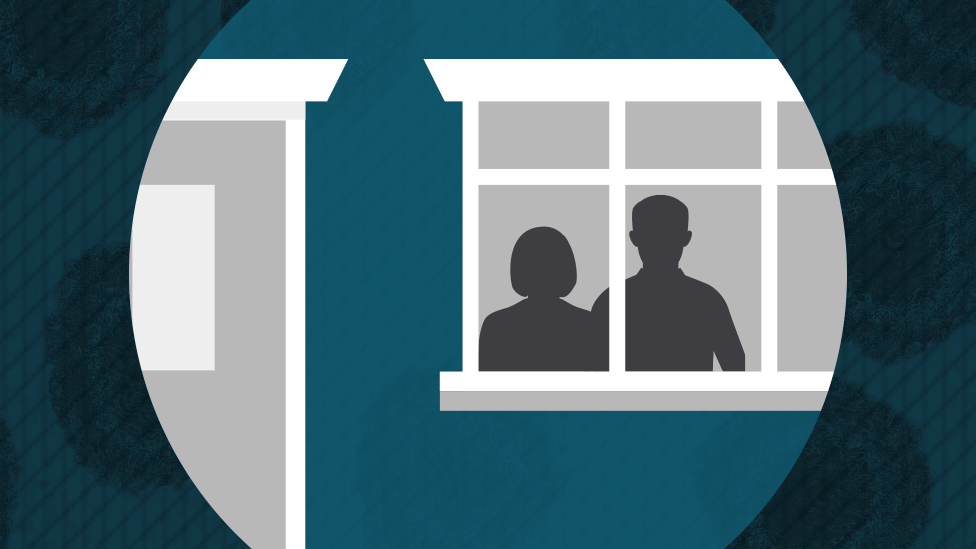Covid: Blind woman's shielding case granted judicial review
- Published

Sarah Leadbetter, who is registered blind, says she has not been sent any information about shielding that she can access
A blind woman taking legal action against the government over claims they did not give her accessible information on shielding has been granted a judicial review.
Sarah Leadbetter said the government sent her letters in a "tiny" font rather than in a format she can access like email or audio files.
The 45-year-old said the review showed how "important" the matter was.
The government said it remained focused on protecting the most vulnerable.
Ms Leadbetter - who is classed as clinically extremely vulnerable - has a genetic condition that affects her immune system, is in remission from cancer and lives with her elderly parents who also have health issues.
She said she only discovered she was on the Shielded Patients List because her mother, who is also shielding, received the same letter and told Ms Leadbetter.
Her solicitors said this breaches duties under the Equality Act 2010 and the Accessible Information Standard.
Ms Leadbetter, from Narborough, Leicestershire, previously said formats like an audio CD or emails with voiceover capability were preferable to Braille and large type.
She said it was "wonderful" a judicial review had been granted.
Ms Leadbetter added: "This shows how important it is that blind people, not just me, should get information in an alternative format.
"This change needs to happen.
"The issues I face are not unique to me, they are commonplace among blind and partially sighted people. We feel as if we are treated like second-class citizens."

Solicitors said the review has been listed on an urgent basis
Solicitor Kate Egerton, who is acting for Ms Leadbetter, said the Department of Health and Social Care (DHSC) refused to provide sight impaired people with communications regarding shielding in their preferred format.
She said: "The DHSC argue that their failure to do so is not unlawful because there is no substantial disadvantage to sight impaired people in receiving hard copy letters, and that it would be too difficult logistically to provide sight impaired people on the shielding list with their preferred formats.
"Clearly, not being about to access information about shielding puts people's own health - and that of their families - at significant risk."
A department spokesperson said: "The government remains focused on protecting the most vulnerable in our society.
"We have issued guidance for the clinically extremely vulnerable with information on how they can keep themselves safe during the restrictions, and this, along with a wide range of public health guidance, has been made available in a variety of formats.
"Letters detailing shielding advice for the clinically extremely vulnerable are also available in a range of formats and languages, and are also sent by email where an individual has registered an email address with their GP practice."
The judicial review is due to take place at the High Court in March.

Follow BBC East Midlands on Facebook, external, Twitter, external, or Instagram, external. Send your story ideas to eastmidsnews@bbc.co.uk, external.
- Published13 July 2021

- Published23 December 2020

- Published19 November 2020
